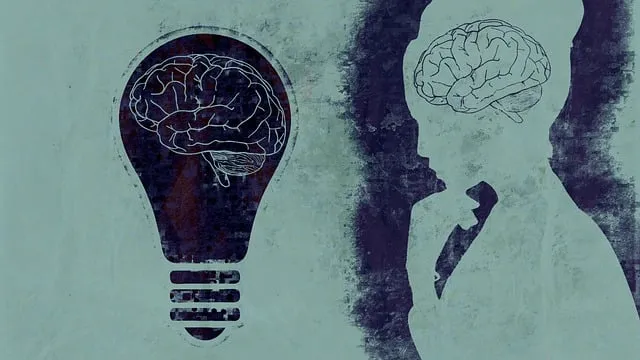Mental wellness journaling, a therapeutic practice mirroring professional therapy sessions at Kaiser in Westminster, empowers individuals to reflect on their thoughts, emotions, and experiences. This safe space aids in identifying stress triggers, developing healthier coping mechanisms, and improving communication skills. By fostering emotional understanding and resilience through expressive writing, journaling can reduce symptoms of stress, anxiety, and depression. A dedicated journaling corner, designed for peace and introspection, enhances these benefits. Using prompts that encourage reflection on challenges and empathy boosts emotional intelligence. Regularly reviewing journal entries tracks mental health progress and supports well-being. Kaiser in Westminster's trained therapists offer valuable support to those seeking mental health services in the area.
“Unwind and embrace self-care with mental wellness journaling, a powerful tool for navigating life’s challenges. In this comprehensive guide, we explore how expressive writing enhances emotional wellbeing. From understanding its benefits to setting up your dedicated journaling corner, we provide practical steps. Discover prompt ideas that inspire meaningful reflections and track your progress as you celebrate small victories. Uncover the transformative potential of mental wellness journaling, just as Kaiser’s therapists in Westminster have helped countless individuals harness their inner strength.”
- Understanding Mental Wellness Journaling: Unlocking Self-Reflection
- The Benefits of Expressive Writing for Emotional Wellbeing
- Creating a Therapeutic Space: Setting Up Your Journaling Corner
- Prompt Ideas to Spark Meaningful Entries
- Tracking Progress and Celebrating Small Wins
Understanding Mental Wellness Journaling: Unlocking Self-Reflection

Mental wellness journaling is a powerful self-reflection tool that encourages individuals to explore and understand their thoughts, emotions, and experiences. By committing time to jot down their feelings, one can gain profound insights into their mental health, just as regularly visiting a therapist at renowned centers like those offered by Kaiser in Westminster does. This practice allows for the identification of patterns, triggers, and potential sources of stress or burnout, especially among healthcare providers.
Unlike traditional therapy sessions, journaling provides an intimate space for self-discovery. It fosters open communication with one’s thoughts and feelings, enabling individuals to implement effective burnout prevention strategies. Through consistent reflection, one can develop healthier coping mechanisms and enhance their overall well-being. Additionally, the practice of mental wellness journaling can improve communication strategies by helping individuals articulate their experiences more clearly, both in writing and in interpersonal interactions.
The Benefits of Expressive Writing for Emotional Wellbeing

Expressive writing has emerged as a powerful tool to boost emotional wellbeing and mental resilience. By putting pen to paper, individuals can explore their thoughts, feelings, and experiences in a safe and private space. This process allows for increased self-awareness, helping people to identify and understand their emotions more deeply. Research suggests that regular expressive writing practices can reduce symptoms of stress, anxiety, and depression, enhancing overall mental wellness. It provides an outlet for processing complex emotions, which is especially beneficial for those navigating challenging life situations or managing chronic conditions.
For those seeking support, finding reputable therapists like those available at Kaiser in Westminster could be a game-changer. These professionals often incorporate expressive writing techniques into therapy sessions, combining it with mindfulness meditation and self-awareness exercises for comprehensive mental health care. Additionally, risk management planning is essential for mental health professionals to ensure they maintain their own well-being while assisting others, especially considering the potential emotional toll of their work.
Creating a Therapeutic Space: Setting Up Your Journaling Corner

Creating a dedicated space for journaling can significantly enhance its therapeutic effect. Your journaling corner should be a place where you feel safe, calm, and comfortable—a sanctuary for introspection and self-care. Consider your environment; ensure it’s free from distractions and clutter, fostering a sense of peace. Incorporate elements that resonate with you personally; perhaps soft lighting, soothing scents, or inspiring artwork. This space should encourage openness and vulnerability, allowing your thoughts to flow freely.
When setting up your corner, think about the tools you’ll need. A quiet, private location ensures uninterrupted time for reflection. Have a variety of journaling prompts or questions ready to guide your process, catering to different aspects of mental wellness. From exploring emotions to setting intentions, these prompts can help cultivate self-awareness and inner strength development. Remember, this space is about creating a consistent routine that supports not just your mental health policy analysis and advocacy, but also effective communication strategies for expressing and understanding your feelings.
Prompt Ideas to Spark Meaningful Entries

Journaling is a powerful tool to explore and enhance your mental wellness, especially when combined with reflective prompts. When considering does Kaiser have good therapists Westminster, remember that self-reflection through journaling can be a game-changer in understanding your emotional landscape.
To kickstart meaningful entries, try prompts like: “Describe a recent challenge and how it impacted your emotions; identify any patterns or triggers.” This encourages an exploration of emotional intelligence—a key aspect often discussed in Risk Management Planning for Mental Health Professionals. Another idea is to write about a time you demonstrated empathy towards someone else and the positive outcome that followed. Building empathy skills, as highlighted by Empathy Building Strategies, can lead to profound personal insights. These prompts not only stimulate writing but also contribute to personal growth and a deeper understanding of one’s mental health.
Tracking Progress and Celebrating Small Wins

Journaling is a powerful tool for self-reflection and tracking your mental health progress. As you consistently record your thoughts and experiences, it becomes easier to identify patterns, triggers, and areas of improvement. By regularly reviewing your entries, you can clearly see how far you’ve come, which is an essential aspect of maintaining good mental wellness. Celebrating small wins is a significant part of this process; acknowledging progress, no matter how tiny, boosts motivation and reinforces positive behaviors.
For those seeking support in Westminster, the question “does Kaiser have good therapists?” might arise. Kaiser Permanente, known for its comprehensive healthcare services, often employs well-trained therapists who can assist with various mental health concerns. Social Skills Training and Healthcare Provider Cultural Competency Training are valuable resources available to enhance your overall wellness journey. Additionally, stress management techniques, when incorporated into your journaling practice, can further improve your ability to navigate challenging situations.
Mental wellness journaling is a powerful tool for self-care, offering a private space to process emotions and track progress. By incorporating expressive writing into your routine, you can unlock profound insights about yourself and improve overall emotional wellbeing. Whether you’re seeking a calming activity or a way to celebrate small wins, this practice provides a unique and personalized approach to mental health support. Remember, just as Kaiser Permanente Westminster has dedicated therapists ready to assist, your journal is a reliable companion on the journey to better mental health.






